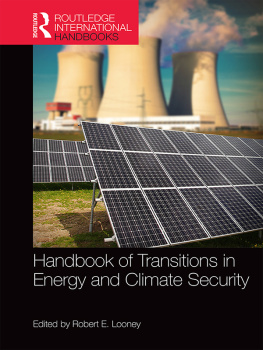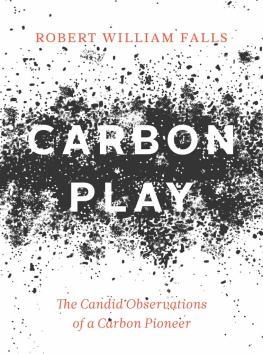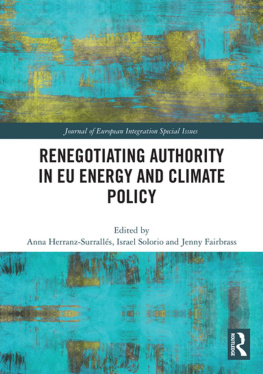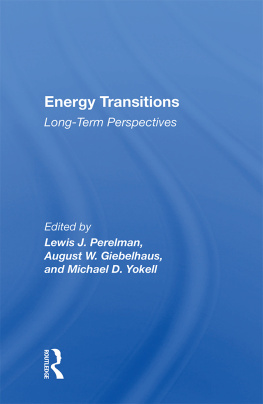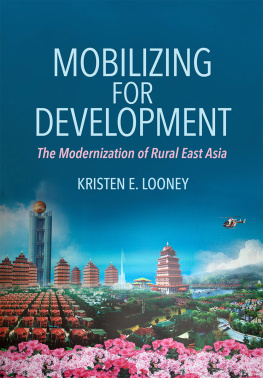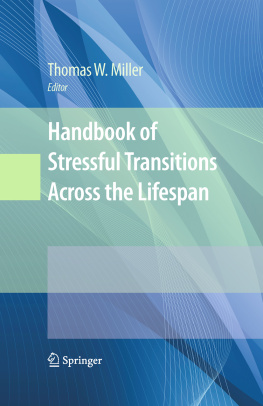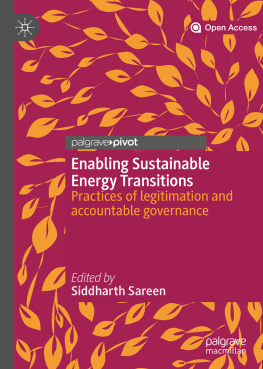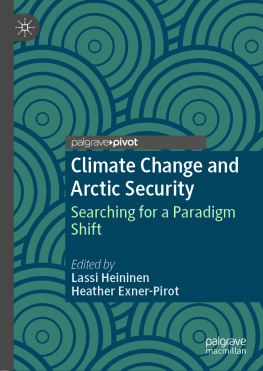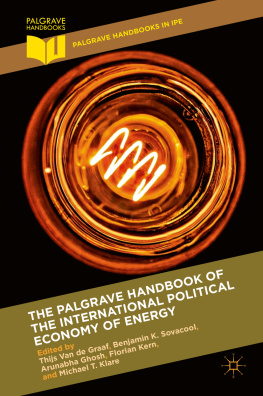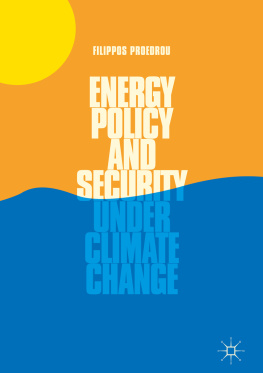Whether countries can transition to a greatly decarbonized society without significantly sacrificing economic performance or energy security remains one of the most pressing problems facing humanity. This book offers a fresh yet pragmatic examination of the economic and political constraints involved in this Herculean task. Important reading.
Benjamin K. Sovacool, Professor of Energy Policy, University of Sussex
Professor Looney has compiled a volume that is sure to become a classic for policymakers on the options for transitioning to an era of energy security, affordable prices and environmental preservation. While the country chapters afford best policies and roadmaps for every category of country, Professor Looneys synthesis is their beacon.
Hossein Askari, Iran Professor, George Washington University
Climate change is a game changer in the global energy landscape. Energy policies have moved beyond the binary focus on supply security in consumer nations and demand security in producer states. Transitioning away from carbon fuels will be necessary, yet challenging, while they are relatively abundant in the wake of the shale boom. There will be great variations between countries depending on their resource endowments, energy mixes, fiscal abilities and policy preferences. This Handbook offers invaluable theoretical insights and case studies to better understand the dialectic between climate and energy, a dialectic that will play a pivotal role in 21st century societies.
Eckart Woertz, Senior Research Fellow at CIDOB (Barcelona Centre for International Affairs) and Scientific Advisor to the Kuwait Chair at SciencesPo, Paris
Every nation and every community is facing critical decisions regarding the relative emphasis it will place on energy security, affordability, and sustainability. There is no better guide to these complex challenges than the Handbook of Transitions to Energy and Climate Security. Not only does it assess the policy frameworks of a broad spectrum of carbon-producing and carbon-consuming countries, but it also examines the global pressures that are so pivotal to the energy debate.
Michael T. Klare, Professor of Peace and World Security Studies, Hampshire College
This superlative volume reshapes the energy-security debate into an energy trilemma discussion, where physical access at reasonable prices is balanced with environmental concerns and financial burdens. Robert Looney, whose pioneering contributions to economic development studies are peerless, has magisterially harnessed the skills of experts to shed light on a global transition period, as developed and developing societies confront challenging tradeoff options. Readers will be grateful for the no-nonsense comprehensive options raised by this leading theoretician, who envelops objective scholarship with empathy, especially towards those who must struggle with conflicting objectives.
Joseph A. Kchichian Senior Fellow, King Faisal Center for Research and Islamic Studies, Riyadh
Handbook of Transitions to Energy and Climate Security
The chapters in this volume flow from a central theme: the transformation of historic patterns of energy use resulting from two dramatic developments, the increased potential availability of energy in many parts of the world on the supply side, and on the demand side, increasing concerns over the harmful effects on the environment of the use of fossil fuels. The international framework for policy evaluation is outlined, followed by country studies demonstrating the manner in which states have adapted to the dramatic changes in the global energy environment, with sections examining carbon-producing countries (including Canada, Mexico, Russia and Saudi Arabia), intermediate carbon-producing/consuming countries (including Brazil, China, Indonesia and the United Kingdom), carbon-consuming countries (including India, Japan, Pakistan, Thailand and Turkey) and carbon reduction countries (including Denmark, France and Germany).
Robert E. Looney is a Distinguished Professor in the National Security Affairs Department at the Naval Postgraduate School, Monterey, California. He specializes in issues relating to economic development in the Middle East, East Asia, South Asia and Latin America. He has published 22 books, including Economic Policymaking in Mexico: Factors Underlying the 1982 Crisis, Duke University Press and Iraqs Informal Economy: Reflections of War, Sanctions and Policy Failure, The Emirates Center for Strategic Studies and Research. Professor Looney has also edited three Routledge handbooks, Handbook of US-Middle East Relations (2009), Handbook of Oil Politics (2012) and Handbook of Emerging Economies (2014). He is the editor of the Routledge series Europa Emerging Economies.
Handbook of Transitions to Energy and Climate Security
Edited by Robert E. Looney
First published 2017
by Routledge
2 Park Square, Milton Park, Abingdon, Oxon OX14 4RN
and by Routledge
711 Third Avenue, New York, NY 10017
Routledge is an imprint of the Taylor & Francis Group, an informa business
2017 Robert E. Looney for selection and editorial material and Routledge for other content
The right of Robert E. Looney to be identified as the author of the editorial material has been asserted in accordance with sections 77 and 78 of the Copyright, Designs and Patents Act 1988.
All rights reserved. No part of this book may be reprinted or reproduced or utilised in any form or by any electronic, mechanical, or other means, now known or hereafter invented, including photocopying and recording, or in any information storage or retrieval system, without permission in writing from the publishers.
Trademark notice: Product or corporate names may be trademarks or registered trademarks, and are used only for identification and explanation without intent to infringe.
Europa Commissioning Editor: Cathy Hartley
Editorial Assistant: Eleanor Simmons
British Library Cataloguing in Publication Data
A catalogue record for this book is available from the British Library
Library of Congress Cataloging in Publication Data
Names: Looney, Robert E., editor.
Title: Handbook of transitions to energy and climate security / editor, Robert E. Looney.
Description: Abingdon, Oxon ; New York, NY : Routledge, 2017. | Includes index.
Identifiers: LCCN 2016022090 | ISBN 9781857437454 (hardcover)
Subjects: LCSH: Energy security. | Climatic changesGovernment policy. | Energy policy. | Environmental policy.
Classification: LCC HD9502.A2 H2574 2017 | DDC 333.79dc23
LC record available at https://lccn.loc.gov/2016022090
ISBN: 978-1-85743-745-4 (hbk)
ISBN: 978-1-31572-361-7 (ebk)
For Lauren and Caitie and the wonderful life that lies ahead
For decades energy has been central to economic growth and improved standards of living for countries around the world. For most consuming countries, an overriding issue has been energy security access to adequate supplies of energy at affordable prices. On the other hand, energy exporting countries have been primarily concerned with security of demand the sustainment of strong, assured sales at stable, albeit elevated, prices.


